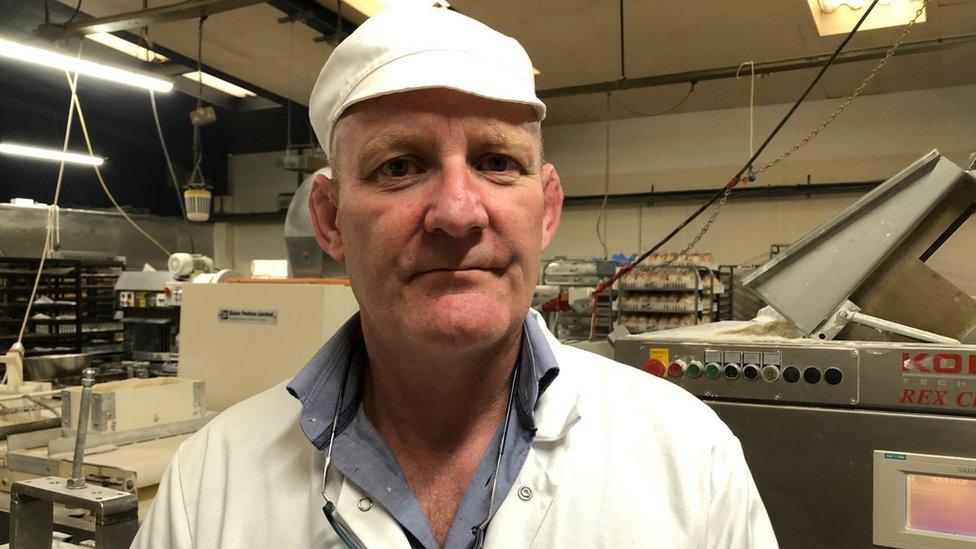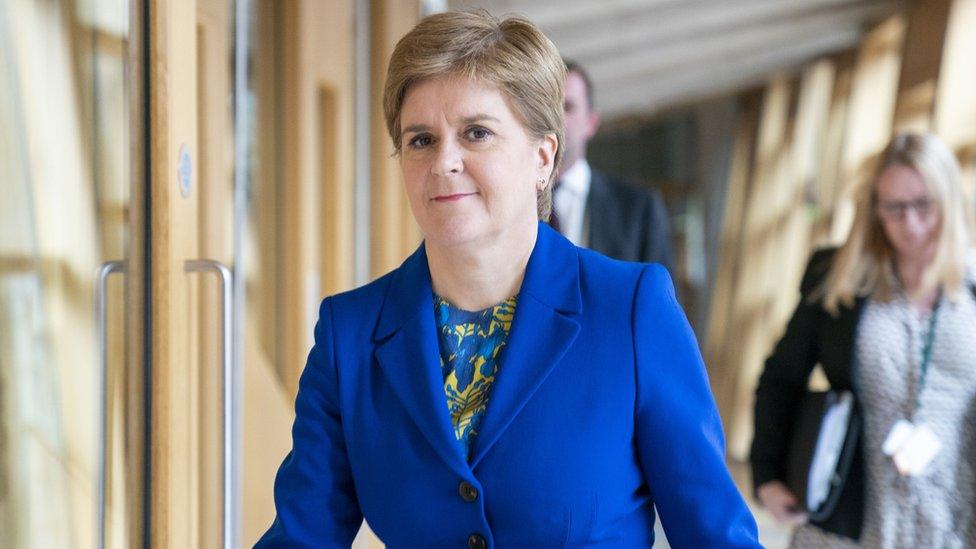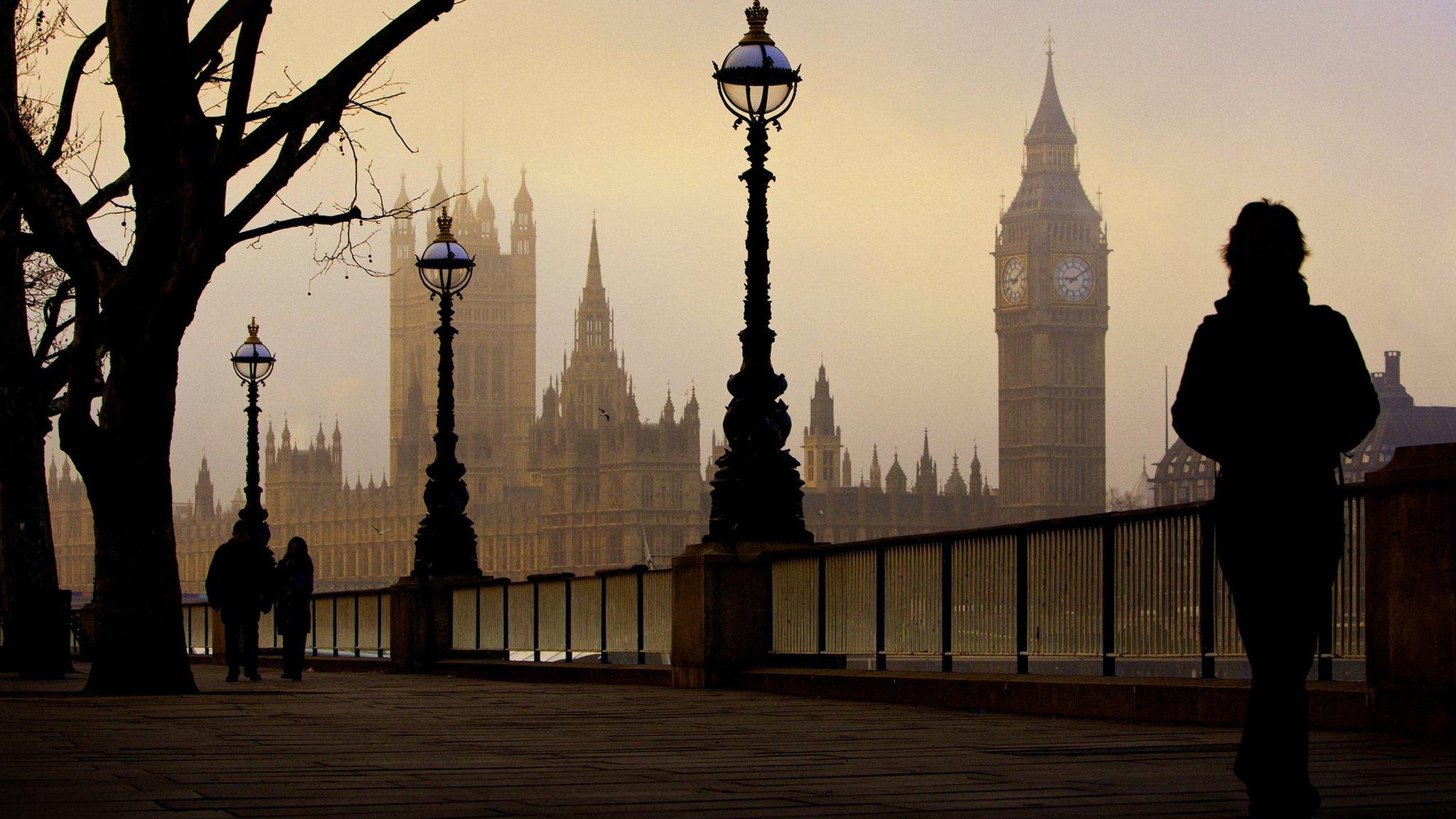PM has left us in dark over energy bill help - businesses bosses
- Published

Carron Bathrooms says all their components are impacted by rising energy costs
Businesses in Scotland say they are being left in the dark over the help on offer for soaring energy bills.
Prime Minister Liz Truss said last week that typical household bills would be capped at £2,500 for two years - with "equivalent support" for businesses.
But trade body Scottish Engineering said what this meant was still unclear.
It warned many firms were already facing crippling energy prices, and urged UK ministers to give clarity to stave off closures.
Paul Sheerin, chief executive of Scottish Engineering, said: "It's great to have a broad statement, but we need details like how it's going to work, eligibility and any special conditions. Will some parts of industry be given priority?
"All this is required by companies who're desperately worried about their industrial energy costs, so they can decide if they can survive."
BBC News has learned that there is expected to be support for struggling businesses when prices go up on 1 October.
However, this help may be backdated - with the precise mechanism and amount of support not to be finalised until November.

Paul Sheerin of Scottish Engineering says businesses need details, not "broad statements"
Scottish Engineering has warned that even healthy firms are being forced to the brink of closure.
Mr Sheerin added: "One of our members has seen its energy bill rise from £15,000 a month to £80,000 a month. That's a level which puts its future at risk.
"So they've had to talk to their accountants about voluntary liquidation - even though their order book is filled to the middle of 2023.
"Right now they're working on connectors to be shipped to Poland for Ukrainian tanks which are desperately needed."
'Claw back costs'
Many businesses sign up to fixed deals covering one to three years of energy costs, but some wait until their bills are adjusted by suppliers.
There is no price cap for firms so they pay the market rate, unless they have negotiated otherwise.
It is expected that about a third will face another hefty rise on 1 October.
While government help for households will see average bills capped for two years, the business support package will run for just six months, with an option to extend support for "vulnerable" firms.
Some business bosses believe this does not go far enough.

Rainbow Room director David Nicolson says recovery is a long way off
David Nicolson, director of hairdressing chain Rainbow Room International, said many firms were still shaking off the impact of the lockdown, so government help needed to be generous.
"I think a year of support would make a difference, along with a reduction in VAT," he said.
"Our suppliers have put their prices up, so we need to be able to claw back our costs, without passing them on to customers."
Mr Nicolson said that knowing there was support would make their business decisions "much more straightforward".
He added: "The recovery is a long way away. We lost 60% of our business as many of our customers now work from home, and don't spend so much time in the city centre. We need to be able to replace that.
"Nobody has the answers. You talk to other salon owners and different businesses and we're all in the same boat. The energy price increases seem so ridiculous.
"I don't see any firm sustain this over the longer term, when we have an economy going into recession. It's potentially going to be a long, dark winter."

James McMorrine of Carron Bathrooms says they are lucky to have a fixed energy deal
Business owners warn that the longer the UK government delays on giving details of support to businesses, the more the impact would be felt across the economy.
James McMorrine, managing director of Carron Bathrooms in Falkirk, said all the raw materials needed in his factory were soaring in price, because his suppliers had been hit by rising costs.
"We have some good fortune as we have a tied-in energy deal for at least 12 to 24 months," he said.
"And we're investing in new robotic systems to cure and finish our baths, which will save energy in future, but the impact is already coming in the cost of our supplies.
"Every one of the components that we bring in has been impacted by energy, and that's seen a real hit. At one point, the price of acrylic, which we use to make baths, rose by 7% overnight.
"Suppliers now say there could be an 'energy surcharge' in contracts we sign. Some of these costs could be passed on to customers, some we can't."
Following the death of Queen Elizabeth II last week, the UK Department for Business, Energy and Industrial Strategy said meetings would continue and the business of government would go on during the official mourning period.
It said an announcement would be made "in due course" on how a package of energy support for businesses would work.
- Published10 September 2022

- Published8 September 2022

- Published22 September 2022

